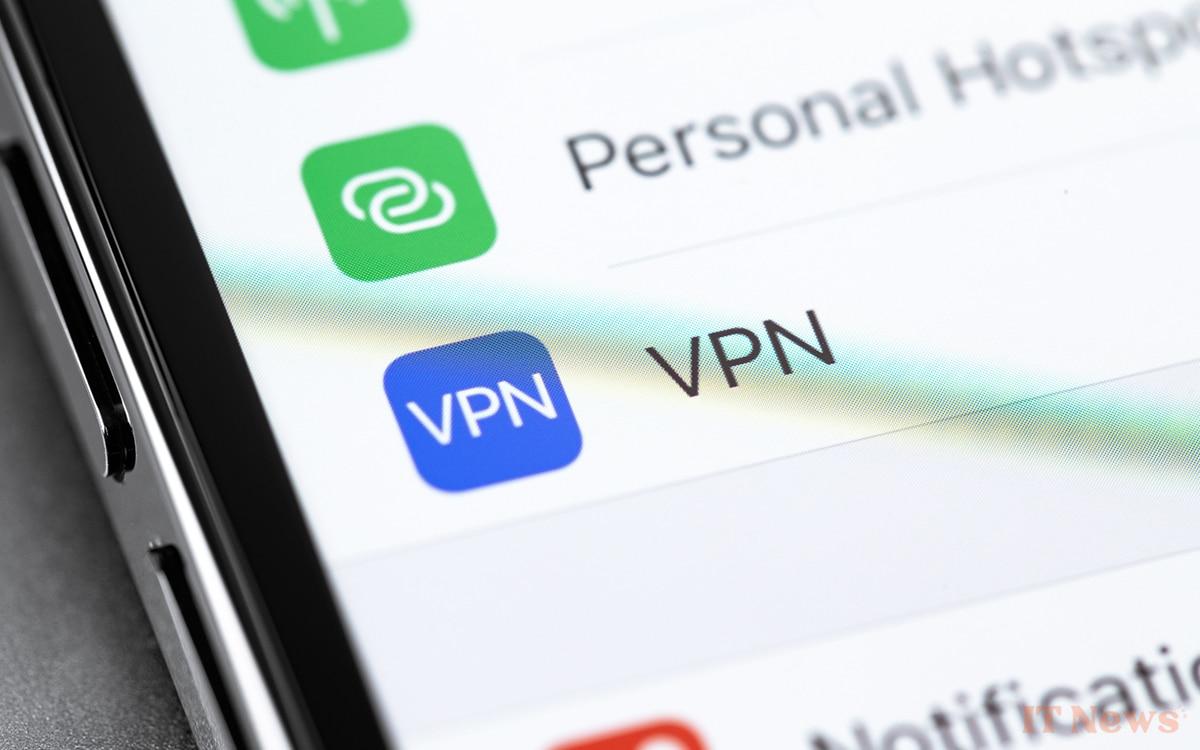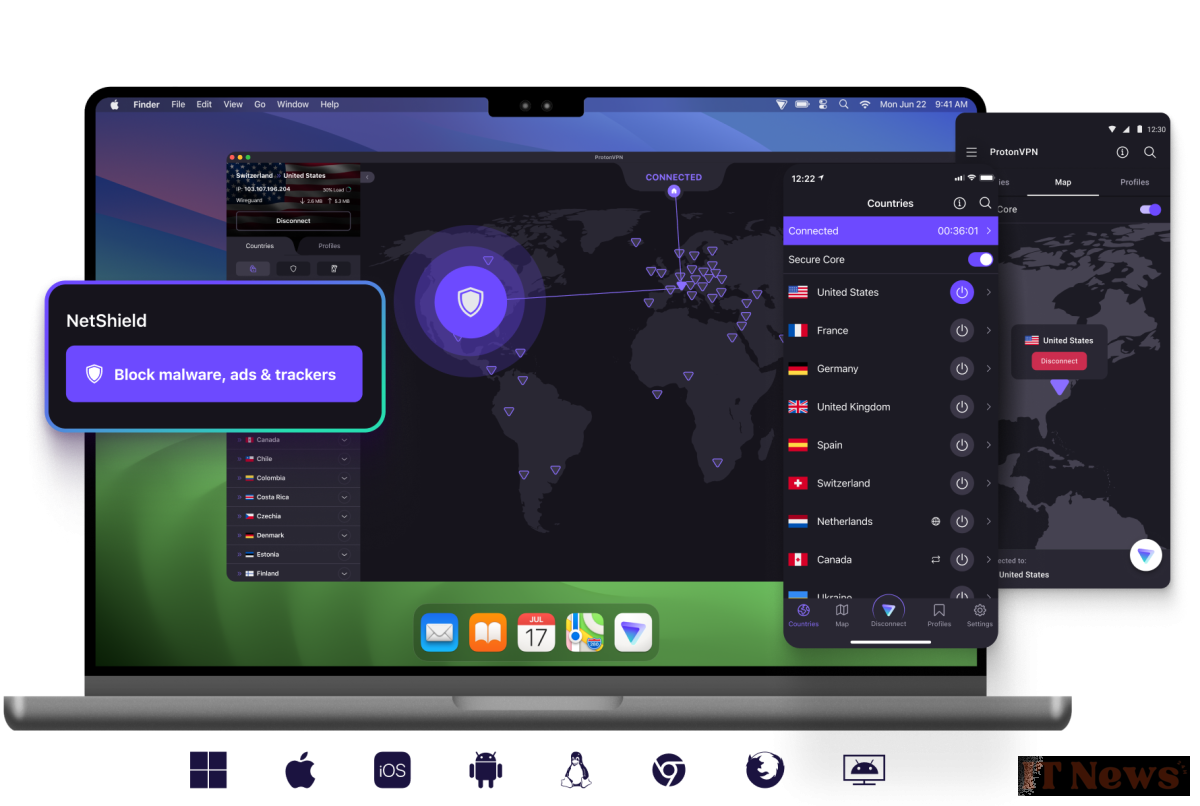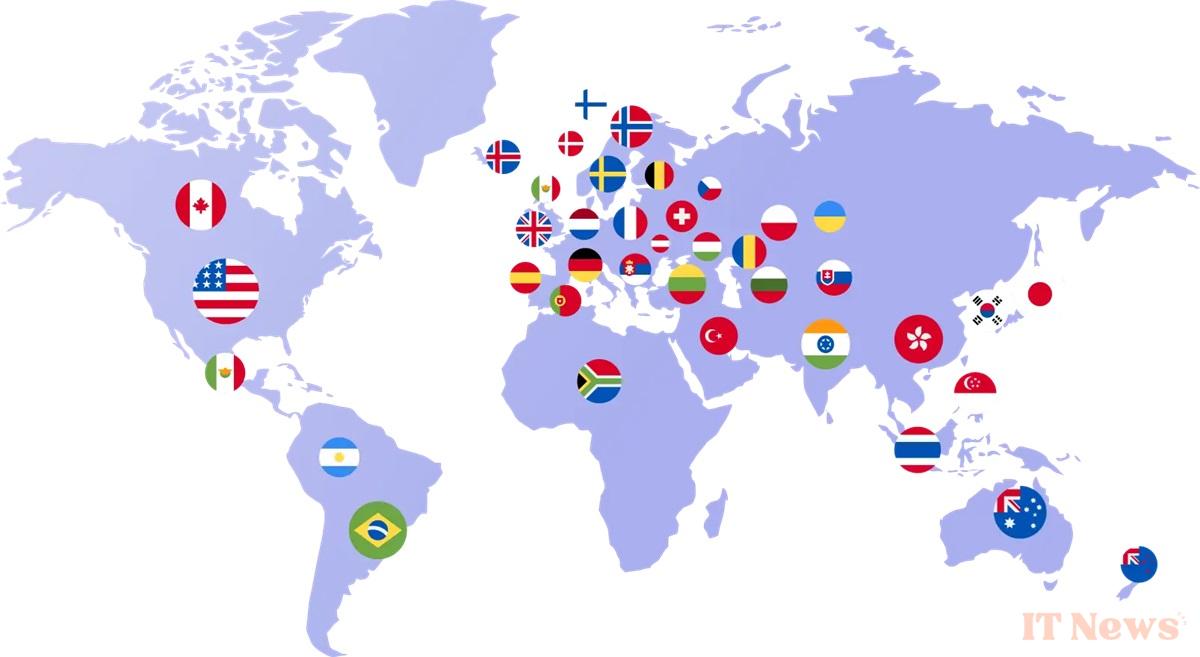Is there really any benefit to using a paid VPN over a free VPN? What are the differences between these services, which promise access to the same basic technology and more or less the same effects? We'll explain everything you need to know so you can make an informed choice.
VPNs have become very useful, even essential, tools for browsing the internet. The VPN offerings are overwhelming today, and it can be difficult for less experienced users to navigate them. For example, there are free solutions, while others require payment. But then, why pay if you can access this type of service for free? Quite simply, because the services offered are not the same, whether it's security quality, personal data protection, performance, interface, or specific features. In this comparison, we'll look at the main differences between paid and free VPNs.
What is a VPN?
To fully understand the difference between a free VPN and a paid VPN, you need to have a clear idea of what a VPN really is. This is a virtual private network, which acts as a proxy between the device you're connecting from and the internet. By using this intermediary VPN server, your internet service provider can't track which sites you're visiting or analyze your activity. Likewise, the platforms you access can't trace you back to you or find out your real IP address. Additionally, a VPN connection is encrypted to prevent any third party from stealing incoming and outgoing data. These are the basics of what a VPN is.
Data Protection
One of the main benefits of using a VPN is preventing your data from falling into the wrong hands. That's why you shouldn't compromise on privacy and information protection when choosing a VPN provider. In particular, you must ensure that the VPN service adopts a strict no log policy, meaning it does not record its users' activity logs. Real IP addresses, browsing history, connection times, downloaded files... all this data is at the mercy of the VPN provider, so you must choose carefully. Read the privacy policy of the platforms you are considering before making your decision. Generally, free VPNs store and use your information to resell it, since they need to find a source of income.
But you shouldn't just take the word of the industry players. The most reputable companies are regularly audited by independent security firms, which produce publicly available reports. These audits are used to verify that confidentiality promises are being kept, that the technologies announced are indeed those used, that there are no security flaws in the technical infrastructure, etc. Here again, it is the most reliable providers, those who charge for their products, who request to be independently audited.
Another element to consider is the location of the company's headquarters, which indicates its jurisdiction. The VPN services that best protect your information are never based in countries that are part of international intelligence alliances, such as the 5 Eyes, 9 Eyes, or 14 Eyes. Instead, they are located in states with strong data protection laws, such as Switzerland, Panama, the Netherlands, the British Virgin Islands, or Romania. Free VPN solutions may be subject to regulations that require data retention and sharing with authorities. In some cases, the origin of companies providing free VPNs may even be opaque, making it difficult for the user to know for sure which legislation they comply with.
Security
Security guarantees are not the same if you use a free or paid VPN. Normally, traffic is encrypted in both cases. But premium platforms will use more advanced technologies, such as the 256-bit AES (Advanced Encryption Standard) protocol, for example.
The VPN protocols used are also more advanced among paid services, which offer the most powerful and secure ones. Examples include WireGuard, OpenVPN, and IKEv2/IPsec, while some platforms even develop their own proprietary VPN protocol (NordLynx and NordWhisper at NordVPN or Stealth at ProtonVPN, for example). Free tools, on the other hand, will use Peer-to-Peer (P2P) network sharing to assign you another user's IP address or the Point-to-Point Tunneling Protocol (PPTP), which is considered outdated and riddled with security flaws. They can help bypass geo-restrictions, but they're real security traps.
Additional features enhance security, such as the Kill Switch, which automatically terminates the connection as soon as the VPN tunnel is no longer active, for any reason. Tools like DNS or IP leak protection and Double VPN, which adds an extra layer of protection, are also very useful and exclusive to the best services.
Some paid VPN providers include ad and tracker blockers, as well as malware and phishing protection in their offerings, which increases both browsing comfort and security. The Split-Tunneling feature, which is absent from free VPNs, allows you to choose which sites, platforms, and applications should go through the VPN tunnel and which should be excluded, which is very useful in certain situations.
Beyond the security options available to users, the vulnerability of the provider's infrastructure is a subject to consider. Several free VPN services, such as GeckoVPN, have been hacked, resulting in leaks of user data. Paid platforms are certainly not immune, but they have more resources to protect themselves against external threats.
Performance
Since traffic is encrypted and must take a detour through the VPN server, which acts as a buffer, connection speeds are inevitably slower. Speeds are lower and latency is higher when using a VPN. But not all services are created equal. The quality of VPN platform infrastructure is a key element for a fast and stable connection. Generally, free VPN providers make little effort in this area. Paid VPN services, on the other hand, invest in offering good performance to their users, which is a strong selling point to potential customers.
With a free VPN, websites will tend to load more slowly and downloads will take longer to complete. Watching videos will become more difficult, with less sharp images, the presence of artifacts, and potentially buffering issues. Don't think about gaming online with a free VPN; only the best paid VPNs manage to reduce latency enough to make this possible.
Paid VPN services will also offer servers specially optimized for certain activities, such as video streaming, torrenting, or online gaming. In addition, they offer unlimited bandwidth, unlike many free VPN providers, which limit the amount of data available. Sometimes, you can only watch a few minutes of video before hitting your bandwidth limit.
Choice of servers
While paid VPNs often provide access to thousands of servers from over a hundred different locations, the choice is much more limited with free VPNs. Some don't even allow you to choose which country you want to connect to. Others do, but with a very limited list. If you're abroad, you'll have a hard time finding a VPN server in France with free platforms. Many of them also don't offer the option to connect to a server located in the United States to access the more generous content catalogs of video streaming platforms. Finally, if you need to connect to a particular country for one reason or another (completing an administrative procedure, accessing a good or service that is unavailable or more expensive from your country), the location you are interested in is likely not included.
Circumventing protections anti-VPN
Many websites and platforms, particularly video streaming services, have implemented VPN detection systems that prevent access to their content if the VPN connection is not disabled. These protections exist to prevent users from watching sports, series, or movies that are not available in their country, or from getting preferential rates on products and services.
Most established paid VPNs offer a feature to circumvent these limitations. There are several methods to achieve this. For example, some providers use the term obfuscation, which hides the fact that you are using a VPN to redirect your online activity. This also allows you to bypass restrictions in restrictive environments, such as some public or corporate networks. Hiding the fact that you're using a VPN can also be useful in countries that prohibit or restrict their use.
Advertising
To make money, some free VPN services will display advertising. These can be more or less intrusive, but in any case, they risk degrading the experience, especially in the case of pop-up windows that are not always easy to close. In addition, some ads can redirect the user to scams or host malicious code aimed at infesting your device to steal data or take control of it.
Some platforms offer a limited free plan and a paid premium offer. They will then push the user with a free account to upgrade to a subscription through incentives within the software interface, or via email communication campaigns. A constant solicitation that can become burdensome and annoying in the long run. It's also not always clear what is included or not with the free solution, and it can become frustrating to be refused a service because it requires payment.
Customer Support
If you encounter a technical problem with your VPN, no one will be there to help you with a free service. Configuration conflict on Windows, attempts to install the VPN at the router level... advisors are there to help you with any issues if you have subscribed to a paid service. Generally, customer support is available 24/7. It can be reached via live chat, form, or email. French-speaking agents are rare, but automatic translation systems allow you to write in French and receive responses in French even if the person you are speaking doesn't speak the language.
Free VPNs should be avoided for all the reasons mentioned above. But it's understandable to want to avoid paying for a one-off need or if you're unsure whether a provider is right for you. In this case, know that there are money-back guarantees with most paid VPN platforms. A simple message to customer support allows you to get your money back in full without having to justify your decision.
ProtonVPN is one of the only premium providers to offer an interesting free solution. It doesn't compromise on security, privacy, bandwidth, and doesn't display ads. However, some advanced features are not available, the list of accessible servers is reduced, and the account is limited to a single protected device. But depending on your business, such an offer may be enough to meet your needs, and there's no risk in trying it anyway.
Our top 3 best VPNs of the moment
NordVPN VPN Full Features.
Full features of Surfshark VPN.










0 Comments